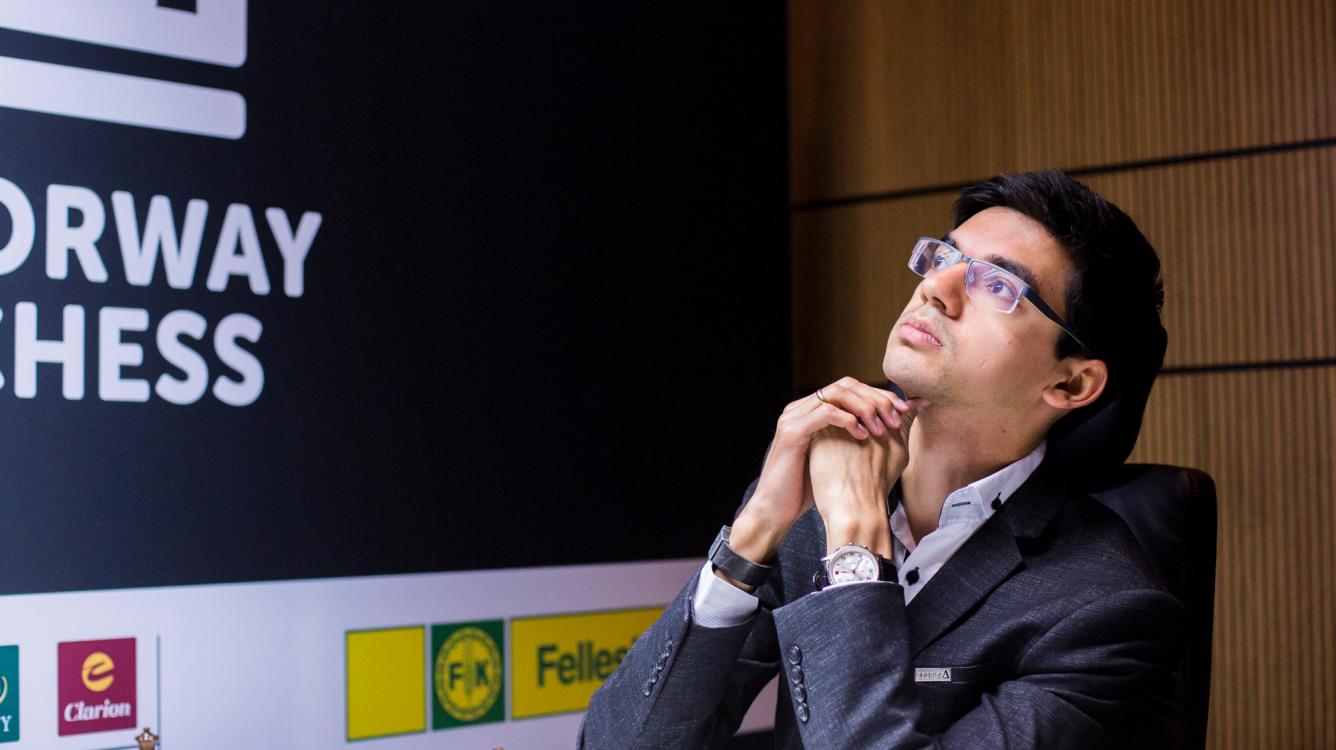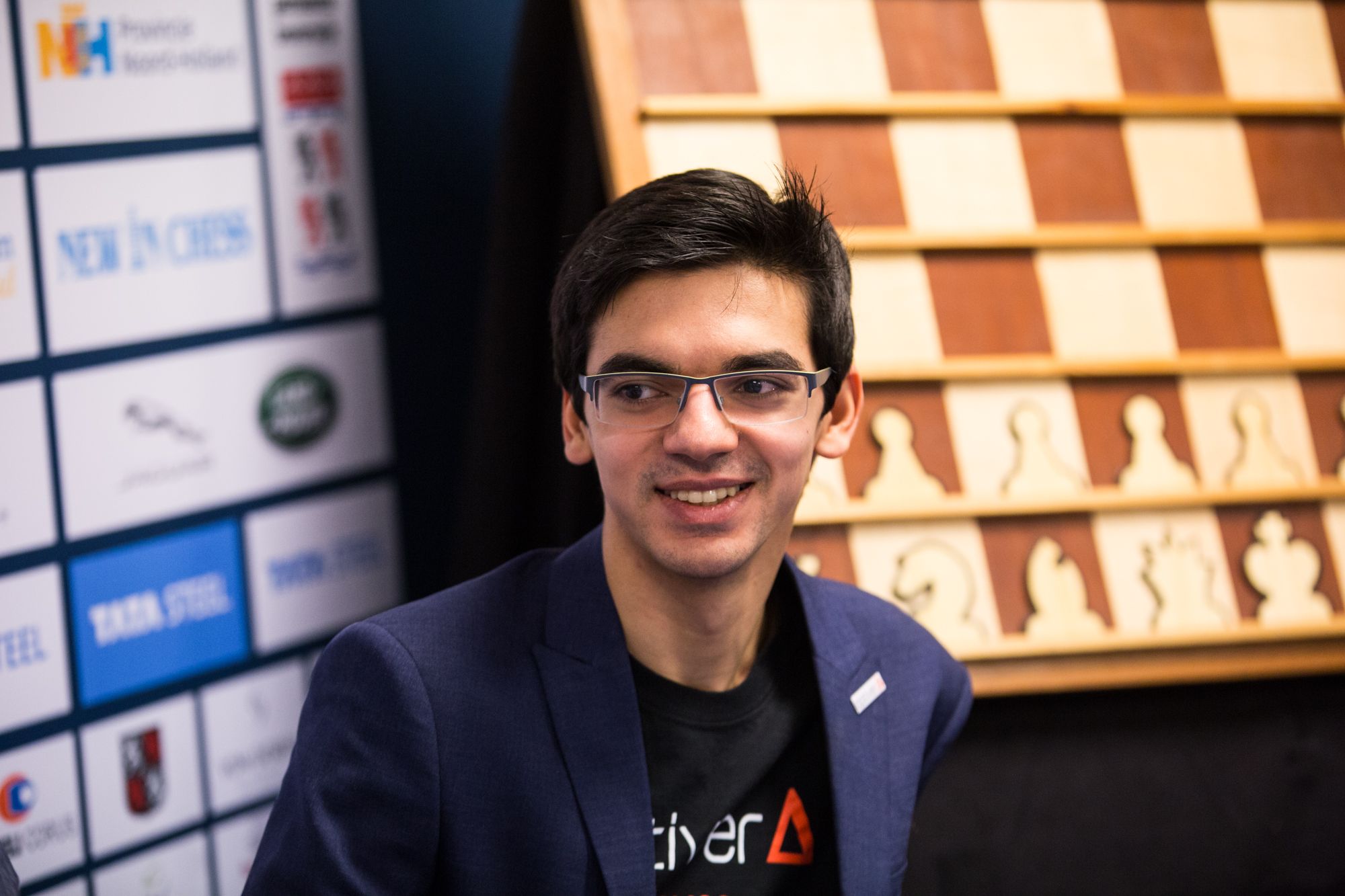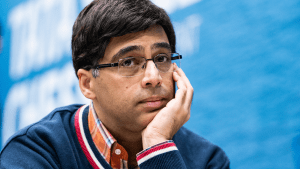
Anish Giri Interview: 'Chess Is Extremely Psychological'
Anish Giri tells David Cox about the multicultural upbringing that shaped his chess talent, why social media has been huge for the game and the moments when he’s believed he can become world champion.
As the current world number-four, Anish Giri is one of the best-known chess players on the planet. But that’s not just because of his skill over the board. The Dutchman has built a rapidly growing Twitter following, thanks to his quick-fire wit and willingness to engage with everyone, from banter with casual fans to jousting with his rivals, most notably Magnus Carlsen.
But Giri is no joker when it comes to the game. As a chess prodigy who came through the legendary Russian chess system, before later moving to Japan and then the Netherlands, Giri was once the youngest grandmaster in the world. In recent years he has developed into one of the most feared players on the circuit, sharing first with Carlsen at the 2018 Wijk aan Zee super-tournament, and coming within a few elo points of breaking 2800.
The interview was conducted via Skype and text may have been edited for clarity or length.

Chess.com: You now represent Holland internationally, but you grew up in many countries. Do you feel Dutch?
Anish Giri: It’s interesting. Most of the people I know have a very clear national identity and I feel how attached they are to their nationality from the way they speak. As a chess player I developed mostly in Holland; I became a strong player and made all the most important steps there—becoming a grandmaster, representing the national team. So as a chess player I certainly feel Dutch and I’m immensely grateful for the support I’m receiving in Holland from my sponsors as well as the Dutch Chess Federation, which is supported by the National Olympic Committee.
But on a personal level, this is hard for people to understand, but I’ve had such an international background from an early age that I don’t feel a particular attachment to the national anthem or things like that. As a person I don’t really attach myself to a country. I guess it’s natural if you travel a lot as a kid.
Did this multi-national background help shape you as a player?
I was insanely fortunate. My mother was Russian and my father was Nepalese so I had both chess culture and genetics growing up. And learning the game in Russia where there are plenty of coaches who know about how to advise children, and which books to study, helped a lot. I studied all the classical games early on, and I experienced the harsh competition between Russian kids, which is way more fierce than many other junior competitions. But at the same time, I was also fortunate to move to Holland at the right time, due to my father’s job, and that gave me a lot of opportunities. Had we stayed in Russia, it would have been harder for me to get all these chances. I played a lot of grandmasters immediately, and I played in the Wijk aan Zee tournament quite quickly.
Speaking of the fierce competition in Russia, just how tough is it, and how does that help the players who do reach the top?
You can see that the mentality of their athletes is a little bit different to those from western countries. And in my opinion, it explains why there are so many Russian winners of the European Individual Championships and the World Cup. Somehow, the Russian players are particularly good at qualifying for something. And I think this is because, throughout their youth, they are qualifying. They’re very good under pressure, and in situations where you’ve got a close race between a lot of people, every half-point matters, and you just have to get your head above the rest.
You often see the Russian players emerge on top. It’s the same in India right now with all the competition between young kids. Whereas their western counterparts like Magnus Carlsen are the geniuses who have come out of nowhere. Each background has its own pluses and minuses. The players who come out of countries with no real chess culture sometimes have a little more flair and inspiration, and they get more opportunities early on. It’s like the German boy Vincent Keymer who will soon be playing in the Grenke tournament against Magnus. While in India, there are probably five players his strength, but because of that, it’s going to take them a while to come across Magnus.
You were once the youngest grandmaster in the world, at age 14. What did it take to achieve that? How far do you think it will go? Will we ever see a 10-year-old grandmaster?
It’s a nice story to tell, but I don’t think it’s that important. You have to become really lucky to become a grandmaster early on. It’s hard to say how far it can go as you have to improve, get the opportunities to play tournaments where you can score these norms, and there’s also a lot of pressure on the kids doing it as there’s a time limit, they’re chasing a record. No one has broken Sergey Karjakin’s record [Ed. note: 12 years, 7 months] yet. But it could happen.
It’s now much easier to gain access to knowledge than a decade ago, and the engines are much stronger so you can learn more from them. But to be honest, the achievement is not as big as it sounds, as the kids who are this good, this young, have far more ambitious goals anyway. They’re aiming to be fighting for the world title. And reaching the top takes time, as you need experience. You have to encounter situations a few times, and you need to fail a few times to learn how to handle them.
Earlier you described chess players as athletes. Do you see chess as more of a sport or a game?
To me, the chess I’m playing right now is absolutely a sport, and I consider myself and my opponents athletes. The top players are just like other athletes, focusing on the game and whatever they do, how they spend their day is directed towards their ultimate goal. But in a way, chess is of course more than that. It has a special role in different cultures and in society. So in that sense, to describe chess as just a sport, is unfair to the game.

Chess has tried in the past to get into the Olympics. Is that something you would like to see?
I don’t know how important that is for chess. I don’t think the Olympics are essential to popularize and grow the game. There’s already a chess boom taking place in Russia thanks to Karjakin and his attempts to become world champion, and in India there’s a gigantic chess boom, thousands of kids playing, and their parents fully dedicating themselves to their careers. And the internet has been huge. The fact that you can now follow games online, with commentators and chess engines enabling anyone to evaluate the position without needing to understand the finesses, has helped bring chess to a bigger audience.
You’re one of the most prolific tweeters in elite chess. What do you enjoy most about Twitter?
The world has changed, and now Donald Trump is announcing the world’s news on Twitter, so you should be connected there for sure! But for me, it’s a way to relax. I’m working very hard on chess and I don’t drink alcohol, so it’s one of the things I do to have fun. It was never my intent to build a following, but it definitely seems to bring chess to more people.
Upon Carlsen's advice I decided to read the chapter about myself in this modern classic (a must-buy!). Turns out I play significantly worse once my computer preparation ends. Now I just need a good coach to fix that minor issue in my play. Anyone?🤦♂️#becomingAlphaZero pic.twitter.com/5uY1GYBJ3N
— Anish Giri (@anishgiri) May 7, 2019
At times, from reading your Twitter exchanges, it’s come across like there’s a bit of an edge between you and Magnus, and even Hikaru Nakamura. Is that the case?
We don’t have any real issues or anything. Sometimes mine or Magnus’ sarcasm can be lost on people. We occasionally target each other with jokes but I think it’s all meant pretty well. In general, the relationship between chess players at the highest level is not easy to describe, because due to the competition there is definitely a lot of tension there. But that shouldn’t be mistaken with genuine hatred.
When it comes to sports rivalries, you just wish for the other guy to screw something up and that’s it. So while I wish Magnus, Hikaru, and everyone lots of health, and happy married life, I’m definitely happy to see them make mistakes. And that goes both ways. I am sure that Magnus and Hikaru don’t wish me any bad, but I am certain that when I lose a game, they are jumping in their hotel rooms, screaming with happiness.
With chess being such a psychological game, do top players do things to get under one another’s skin?
At the top, it’s extremely psychological. In order to perform at your best, you have to feel at your best, and anything can bring you out of balance. So you have to learn all kinds of tricks and psychological weaponry to stay in that ideal state of mind and not be distracted by your enemies. Everybody is constantly trying to get some edge. That happens before games, between games and during games. Body language is also very important. You can sometimes see that chess players have unexpected good and bad streaks. These things have an explanation. Just as tennis players get injuries, which take them out for a few months, chess players can be knocked out by a mental injury. I’ve seen many such cases at the top level.
Tell us about some of the psychological warfare that takes place.
The players I know, stay very decent, but the tricks don’t have to be dirty. There are some players that take up a lot of space at the board. Like physically, they spread out their body a little bit, and start grabbing territory on the table, which can be subconsciously intimidating to some. Or players might get up from the board way too often, or suddenly start making moves very quickly. A common trick is to indicate that a move is not good through facial expressions. That’s extremely common at the top. So it’s all these little body language things. Also in interviews or during press conferences, many players try to very lightly and casually hurt other players.
The closest you’ve come to the world title so far is your showing at the 2016 Candidates' where you famously drew all 14 games. Tell us about that experience.
It was my first experience, and maybe I was a little too nervous, but one way or another, I wasted way too many opportunities to even get to a fight for first place. I was so close to winning a game, and I didn’t manage it. If I’d won one or two games, I would have been close to winning the tournament, but then I would have faced a whole new mental challenge, which I’m not sure I was ready for. But in my mind, the closest I’ve come to the world title was not actually there.
There have been a few tournaments where I really thought, "I can do this one day." I remember the Chess World Cup in Baku in 2015, where I made the semifinal. At some point as I was winning match after match and taking all these long walks at the beach, I felt that the World Cup, as well as the Candidates', were very much doable and I am probably going to become world champion soon. This thought is occasionally going away and coming back. Confidence is a very sensitive thing.

Ever since then, you’ve faced endless jokes about draws, despite regularly being involved in exciting games. Does this ever get to you?
Back then it was really funny because I had all these chances and I couldn’t convert them, and everyone was laughing with me, like, "How is it possible that none of these games end in a result?" But at some point, many people weren’t aware of how it all started, and commenting on Twitter without knowing what happened in the first place. And it’s slightly frustrating when people who have no clue talk about something. But it’s not serious.
If you’re affected by social media these days, then I’m sorry, but you’re not fit for the century! The other day I read an article about Tigran Petrosian, and I never knew this but the guy almost retired at one point because he was bullied for making too many draws. Now we think of him as "Iron Tigran," the great world champion. But at some point the guy was contemplating quitting. He was lucky there was no Twitter back then, otherwise he would simply crack! (Laughs)
Speaking of former world champions quitting, were you surprised by Kramnik’s retirement earlier this year? You worked as his second at last year’s Candidates' and know him pretty well.
It surprised me, but didn’t shock me, let me put it that way. I didn’t expect it, but I could understand why. At the end of the day, chess is not gymnastics and figure skating. You don’t age so fast, but at some point, time still works against you as well. We both are extremely interested in the psychological aspect of the game, and we’ve had many talks about that. I guess he didn’t have as much motivation anymore as people like myself, and then it’s hard to compete.
You’ve also worked as a second for Vishy Anand in the past. What keeps him going, at the age of nearly 50?
Vishy is a legend of the game and a fascinating phenomenon. He’s by far the oldest player at the top, and by far the strongest player of his age. I think his main advantage compared to others of his age is that he’s truly young at heart. For example, many people of his age don’t welcome change. They stop downloading the latest software versions of things or don’t update their apps, like young people do. But Vishy is the kind of guy who I am sure updates all the apps on his phone. At some point, time is basically going to prevail; that is irreversible. But the fact he’s accomplished what he has, and remained there for so long is because he’s able to reinvent himself, and change the way he works, the way he approaches things, just like a younger person does.
You mentioned the rise of internet chess. How do you feel about the new major online competitions like the PRO Chess League and the Speed Chess Championship?
I think it’s a great idea that players are able to play online. It makes events very easy to organize because players don’t have to travel. I feel the issues with potential cheating are easily solvable thanks to the webcam. I like the Speed Chess Championship, and PRO Chess League is also an interesting idea. I played once for the Chessbrahs, and many friends of mine have played, but I’m not sure about the format. It’s a bit complicated for me, with all the divisions and qualifiers. But in general the idea is very cool and I think in the future there’s going to be more tournaments online. Hopefully there will be more substantial prize funds as well as they gain momentum, which can allow more players to make a good living out of chess, not just the top 20, but also the top 50, 100, even top 200. So I think the more tournaments the better.
Have you felt the rise of major websites like Chess.com and online chess has changed the game in any way?
For sure. The biggest thing is the social media aspect, which has come with it. I imagine that for the previous generation, the idea of streaming their games online would be very weird but the current generation is adapting to that, and many players do it very well, and are very fun to watch. Hikaru is a big streamer these days, Magnus also does it occasionally and is very entertaining. Maxime Vachier-Lagrave also gives it a shot. More players will do it in the future.
There is some extra space that chess occupies in the world now, through all these possibilities with Twitch and social media. But at the same time there are still all the traditional tournaments so in that sense it’s nice that this isn’t replacing anything, but it’s just an addition.
A game with Anish Giri:
David Cox: After getting crushed by Wesley So in just 24 moves (officially a "miniature"), I was hoping that landing the white pieces against Anish would give me a slightly better chance of prolonging the tussle. After a confidence-boosting win in the local league (albeit against a player rated FIDE 1846) I was feeling good about my game, but after missing a key tactical idea early on, I was soon on the back foot.
(Annotations by the author, and where stated, by Anish Giri)



